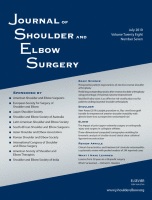
Most RCTs in shoulder and elbow surgery are at high risk of bias and have fragile findings
J Shoulder Elbow Surg. 2019;28(12):2409-2417.The Fragility Index is a measure of how many opposite outcomes it would take for an RCT to go from having a statistically significant finding to being non-significant. The lower this number is, the less confident we can be in the results. This Index has gained popularity in recent years as a way to measure the overall confidence in findings of RCTs on a given topic. In this study, the authors assessed the Fragility Index for RCTs in shoulder and elbow surgery. They found a median Fragility Index of 4, with a high proportion of trials at high risk of bias.
Unlock the full ACE Report
You have access to {0} free articles per month.Click below to unlock and view this {1}
Unlock NowCritical appraisals of the latest, high-impact randomized controlled trials and systematic reviews in orthopaedics
Access to OrthoEvidence podcast content, including collaborations with the Journal of Bone and Joint Surgery, interviews with internationally recognized surgeons, and roundtable discussions on orthopaedic news and topics
Subscription to The Pulse, a twice-weekly evidence-based newsletter designed to help you make better clinical decisions
Exclusive access to original content articles, including in-house systematic reviews, and articles on health research methods and hot orthopaedic topics
Or upgrade today and gain access to all OrthoEvidence content for just $1.99 per week.
Already have an account? Log in


Subscribe to "The Pulse"
Evidence-Based Orthopaedics direct to your inbox.
{0} of {1} free articles
Become an OrthoEvidence Premium Member. Expand your perspective with high-quality evidence.
Upgrade Now












































































